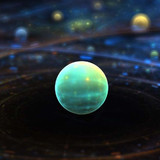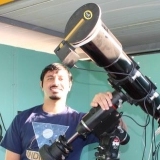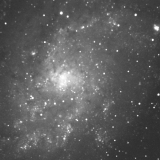INDI Library v2.0.7 is Released (01 Apr 2024)
Bi-monthly release with minor bug fixes and improvements
Astroberry initial release
- Radek Kaczorek
-
 Topic Author
Topic Author
- Offline
- Moderator
-

- Posts: 983
- Thank you received: 375
Astroberry initial release was created by Radek Kaczorek
It's been almost a year since Astroberry project initiation. Now it comes with the initial release, which includes:
- Astroberry Focuser (controls stepper motor connected to RPi)
- Astroberry GPS (controls GPS module and RT clock)
- Astroberry AltIMU (controls gyro, magnetometer, compass and alitimeter)
- Astroberry Mosaic (controls arbitrary FOV mosaic with known CCD FOV)
The source code has been moved to github. Please use the following url to access the latest version: github.com/rkaczorek/astroberry-diy
Screenshots:
Please Log in or Create an account to join the conversation.
- Jasem Mutlaq
-

- Away
- Administrator
-

Replied by Jasem Mutlaq on topic Astroberry initial release
Please Log in or Create an account to join the conversation.
- Radek Kaczorek
-
 Topic Author
Topic Author
- Offline
- Moderator
-

- Posts: 983
- Thank you received: 375
Replied by Radek Kaczorek on topic Astroberry initial release
As for now the hardware specs and Raspberry Pi wiring are available in the project README file.
I'm also preparing img file ready to flash your microSD card. Let's call it Astroberry distro
It is based on Raspbian 8 Jessie with the latest INDI server onboard.
Works out of the box and features i.e.
- Powering on/off up to 4 devices (NEW)
- Reading time and position from GPS (NEW)
- Mount control
- CCD control
- Focuser control (NEW)
- Reading 3D position and atmospheric pressure (NEW)
- Mosaic mode (NEW)
Now I'm thinking of pure INDI based (no KStars needed) plate solving driver using astrometry.net and working on autoguiding.
Please Log in or Create an account to join the conversation.
Replied by gus on topic Astroberry initial release
I am very interested in knowing your progress with autoguiding and plate solving, as that is my objetive too.
And one last thing. I read in:
5. Astroberry Mosaic
No additional hardware used.
Note: You must set the names of your ccd and mount before compiling the driver.
Look for MYCCD in rpi_shot.cpp and MYSCOPE in rpi_goto.cppBut I don't find the sources. Only the .deb for raspberry pi. Even more, wouldn't it be nice to read and write that value with a driver property?
Please Log in or Create an account to join the conversation.
- Radek Kaczorek
-
 Topic Author
Topic Author
- Offline
- Moderator
-

- Posts: 983
- Thank you received: 375
Replied by Radek Kaczorek on topic Astroberry initial release
For easy access I have just uploaded a tar archive. You can access it here: sourceforge.net/projects/astroberry/file...i-astroberry_1.0.tgz
Plate solving on Raspberry Pi directly seems to be really bad idea due to low processing power available compared to the requirements.
Autoguiding using Lin_guider running through a web browser with TightVNC java client seems to work OK. Currently, I'm in the process of the first tests.
Please Log in or Create an account to join the conversation.
Replied by gus on topic Astroberry initial release
Regarding to processing power for plate solving, I see no problem at all with the pi 2. I already tested it and got 45secs consistently with my equipment (Nikon D7000 with a field of 3.2x2.1 degrees). In fact, I am working in a python indi client to control it. Though it would be better your solution of a device, so I could control it with a web indi interface (I got that interface already working) or kstars or whatever...
The openness and flexibility of indi it's such a good thing that I hardly understand why it is not more widely used.
Please Log in or Create an account to join the conversation.
- Radek Kaczorek
-
 Topic Author
Topic Author
- Offline
- Moderator
-

- Posts: 983
- Thank you received: 375
Replied by Radek Kaczorek on topic Astroberry initial release
What kind of web indi interface you are referring to?
Please Log in or Create an account to join the conversation.
Replied by gus on topic Astroberry initial release
Please Log in or Create an account to join the conversation.
Replied by Oleg on topic Astroberry initial release
Please Log in or Create an account to join the conversation.
- Radek Kaczorek
-
 Topic Author
Topic Author
- Offline
- Moderator
-

- Posts: 983
- Thank you received: 375
Replied by Radek Kaczorek on topic Astroberry initial release
Please Log in or Create an account to join the conversation.
Replied by Oleg on topic Astroberry initial release
Please Log in or Create an account to join the conversation.
- Dan Holler
-

- Offline
- Premium Member
-

- Posts: 155
- Thank you received: 10
Replied by Dan Holler on topic Astroberry initial release
Do I understand this thread correctly, a person downloading Astroberry could install onto a Pi 2 and then it would integrate to a webserver such that anyone could access and control the observatory devices?
Or, is this just using KStars as a remote INDI client?
Thanks in advance,
Dan
Please Log in or Create an account to join the conversation.






